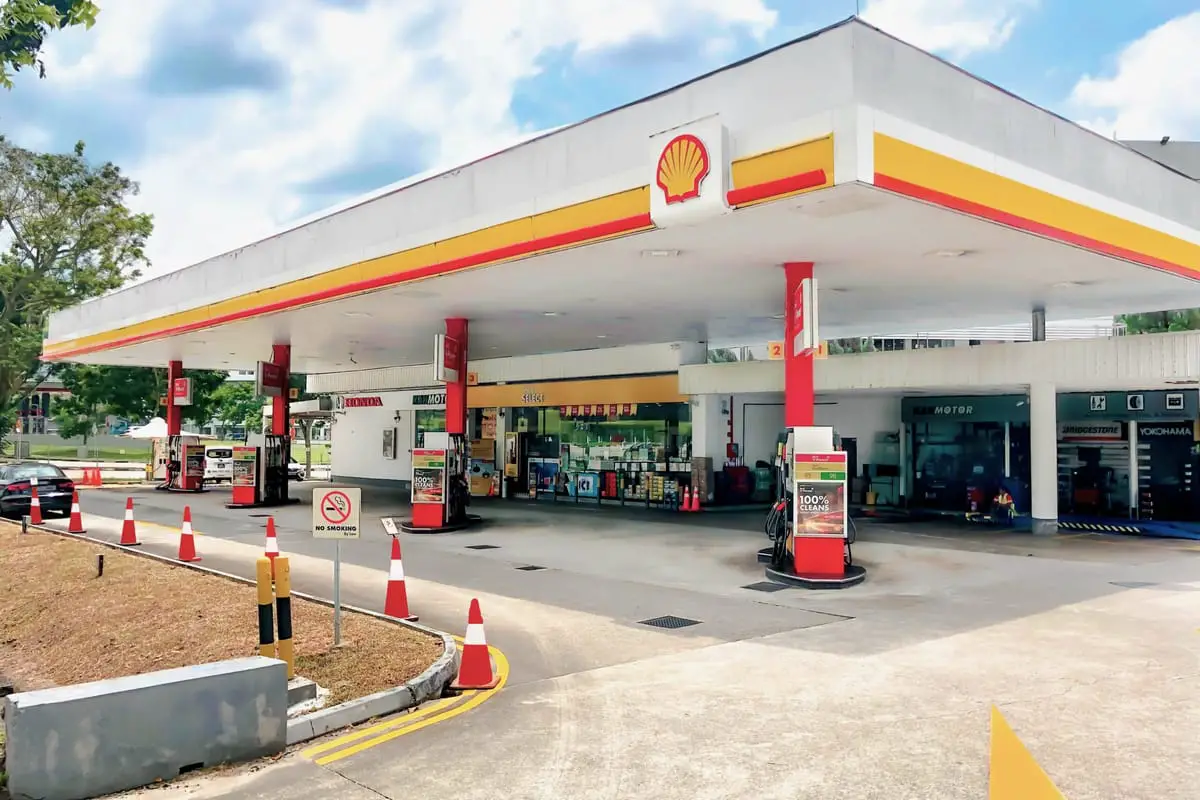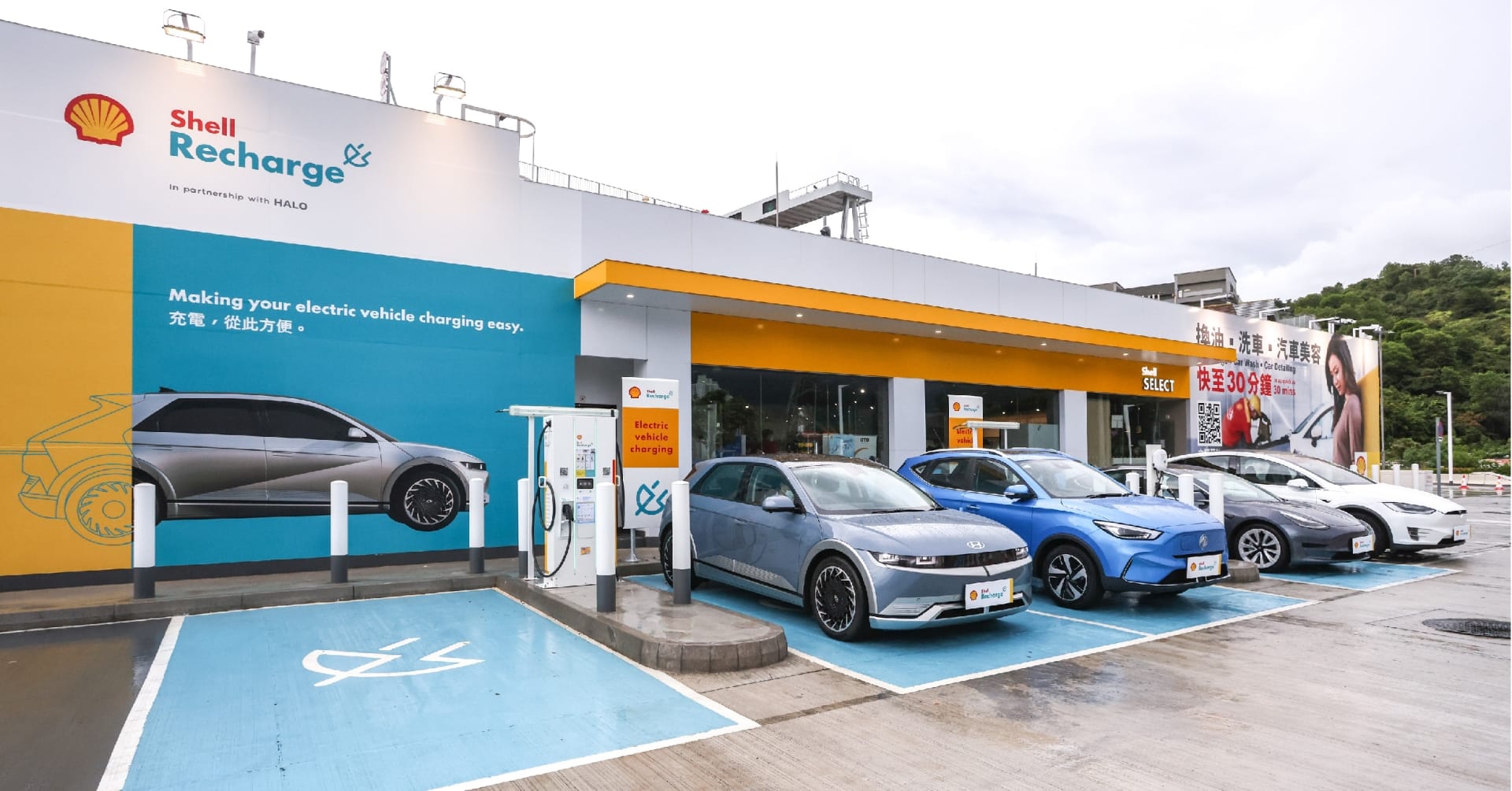Eye on EV Charging: Shell and BYD Put Massive Charging Station.
Shell is a major producer of oil that is used by Internal combustion Engines (ICEs) while BYD is a major manufacturer of electric vehicles globally.


Shell is a major producer of oil that is used by Internal combustion Engines (ICEs) while BYD is a major manufacturer of electric vehicles globally. The two companies have collaborated and have come up with the largest electric vehicle charging station in the world in Shenzhen, China. The two entered into a charging partnership in March 2022 to develop an EV charging network in China.
The station is situated approximately 2.5 kilometers from the Shenzhen Airport Terminal, this charging station boasts an impressive 258 public fast-charging points. The facility is jointly operated by Shenzhen Shell and BYD Electric Vehicle Investment Company Limited, the massive charging station has 258 charging ports with solar panels that will generate up to 300,000 kW annually.
Shell currently has more than 40,000 public charge points globally for electric vehicles at forecourts, retail sites, and destinations. By 2025, Shell expects to have around 70,000 public EV charge points and around 200,000 by 2030 globally. Shell operates 800 charging stations across China through joint ventures or wholly owned subsidiaries, a buildout that comes as the Chinese government seeks to build up a network of public chargers and meet rising EV demand. Shell shares climbed to their highest levels since July 2019 earlier in the session as Brent crude rose above $95/bbl, but have since pulled back along with oil prices.
For a bit of perspective, Tesla has established a substantial charging network across the United States. However, the Texas-based automotive giant hasn’t yet unveiled a single location with a charger count to rival this new behemoth in Shenzhen.
Related: Oil Company Installs EV Charging Station
According to István Kapitány, executive vice president of Shell's global retail and mobility business, China is one of the most important growth markets for Shell's retail and mobility business, where the company's charging stations are utilized at two to three times the industry average.
While the number of EVs grows rapidly, Shell remains committed to meeting the different energy and mobility needs of drivers. In Wuhan, Shell recently opened its Panlong Integrated Energy Station. This station offers more than ten types of mobility products and services, including petrol and diesel, EV charging, hydrogen refueling, car wash facilities, a convenience store, a restaurant, a driver's lounge, and other services. The station also offers Shell V-Power Racing which was recently launched in China, a fuel formulation designed to deliver 6.25% more power and 5.36% quicker acceleration compared with 92 octane main-grade petrol.
The opening of the world's largest EV charging station is a positive sign for investors in Shell and other companies involved in the EV industry. It shows that the demand for EVs is growing rapidly and there is a significant opportunity for companies that can provide the infrastructure and services needed to support this growth.
Shell is well-positioned to capitalize on this opportunity. The company has a strong brand, a global footprint, and a track record of success in the energy industry. Shell is also investing heavily in renewable energy and other clean energy technologies. Investors who are looking to invest in the EV industry should consider companies like Shell which are well poised to benefit from the transition to EVs.
Also see: Shell expands its charging stations.
E-Mobility will be one of the leading pathways to decarbonize passenger vehicles in the next two decades. Electric vehicle adoption is growing exponentially in the US and around the world. Globally, it’s estimated that 75 percent of all passenger vehicles sold will be electric by 2040. As one of the world’s largest energy providers, Shell is well-placed to adapt to our customer’s evolving needs and provide a reliable EV charging experience.
The Shell Recharge network is growing. The Shell Recharge will cater to EV drivers’ out-of-home charging. It aims to be the leader that helps each new generation of drivers understand and embrace the unlimited potential of EVs. Shell Recharge will help remove the barriers that prevent drivers from feeling the freedom of EV driving by providing a fast and reliable charging experience.
You might wonder about the impact of massive stations on the local power grid. Surprisingly, Shell assures that the station is practically a self-sustaining powerhouse, capable of generating up to 300,000 kilowatt-hours of electricity, courtesy of the facility’s rooftop solar panels. Also, you might ask yourself why Shell chose to invest with BYD in such a massive charging project, this is because of the competitive landscape of the EV market in China. The BYD Song Pro is vying for market share against the immensely popular Tesla Model Y. This collaboration serves to amplify the presence of BYD, especially in Shenzhen, which happens to be the company’s stronghold.
Moreover, the insatiable appetite for EVs among Chinese consumers is undeniable. Even Ford has conceded that China is leading the pack in the global EV race.
Meanwhile, the United States is gradually expanding its EV charging infrastructure, with Tesla holding the reins. Major players like Walmart are planning to introduce thousands of charging stations, and unexpectedly, even Subway is jumping on the bandwagon through a partnership with GenZ EV Solutions.
Shell’s impressive new charging station in China is indeed a sight to behold, and it raises the bar for what’s possible in EV infrastructure. Given the slow yet steady embrace of EVs in the United States, it wouldn’t be far-fetched to anticipate a similar, or perhaps even more grandiose, development on American soil.
This partnership between BYD and Shell is not just about setting records; it’s a strategic move in a highly competitive market and a testament to the shifting tides in the automotive and energy sectors. With the increasing popularity of EVs worldwide, it’s only a matter of time before we see more such collaborations and innovations, pushing the boundaries of what’s possible in the EV ecosystem.
In comparison, Australia has only recently surpassed 120,000 EVs and the largest charging sites that are currently commissioned are operated by Tesla. Box Hill in Melbourne and Campbelltown in Sydney both have 12 fast-charging stalls with plans for Tesla to open 20 stall sites in the coming years.
Tesla also recently opened 30 of its Australian sites to non-Tesla EVs, which is good for EV drivers and will help drive greater adoption with more chargers in the open network. This has also started to create healthy competition amongst other charge point operators and will accelerate the rollout of more sites in Australia.
Although the growth in EV uptake has driven a surge in charging infrastructure projects, it’s unlikely that we will see 258 charging station sites like those in Shenzhen anytime soon. We hope to have hundreds of smaller hubs across major cities and towns globally, helping EV drivers travel reliably across the country.
Why choose Shell Recharge as your charging partner?
i) Full-service offer
Shell takes care of the installation, maintenance, and operation of the charging stations adapted to your needs at your locations.
ii) Sustainable energy
The charging stations are supplied with 100% certified renewable electricity, where possible.
iii) Easy payment processing
Shell handles all aspects of payment settlement, both for Shell Recharge and roaming customers.
iv) Access to a diverse portfolio
At certain locations, Shell can provide a Shell Café serving coffee and snacks while customers charge their vehicles. It can even help retailers decarbonize their businesses by providing renewable power through Shell Energy, carbon compensation, and Shell Fleet Services.




